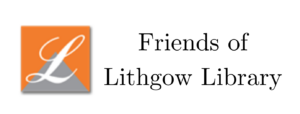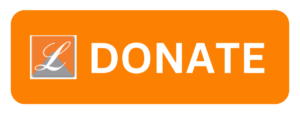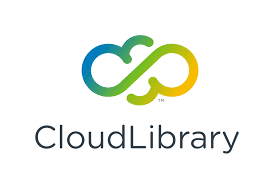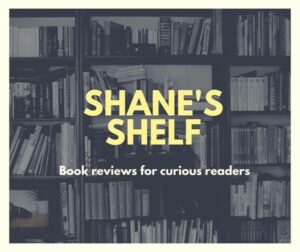Lithgow Public Library Collection Development Policy
Criteria for Selection
The Lithgow Public Library is committed to developing and maintaining a collection of materials
that meets the needs, interests, and abilities of the diverse community members of Augusta,
ME. Criteria for selection include, but are not limited to, an item’s potential popularity, quality,
accuracy, timeliness, and ability to meet a unique need within the collection and the
community. All collection development is done within the limitations naturally imposed by
budget and space.
The Library always adheres to the principles outlined in the American Library
Association’s “Library Bill of Rights;” these ethics guide all decisions
made with respect to the Library’s collection.
Selectors
Materials are selected by the following staff: Library Director, Systems Librarian, Youth Services
Librarian and Teen Services Coordinator, for their respective constituencies. Additional library
staff may also provide input in ordering materials.
Method of Materials Selection
Librarians should exercise their knowledge and experience of the library’s collection and of the
community served. Each type of material must be considered in terms of its own merit and
intended audience.
Reviews in professionally recognized periodicals are a primary source for material
selection. Selectors should also use the High-Demand Holds feature in SIERRA to ensure there
are adequate local copies in the system to meet the demand of Lithgow members.
Requests
All requests from patrons for specific titles or subject requests will be considered, if they meet
our criteria for selection.
In-Kind Donations
All items donated to the Library are referred to the appropriate selector for evaluation for
inclusion in the collection. Considerations used in evaluation include, but are not limited to,
timeliness, condition, quality, ease of processing, fit with material already in the collection, and
available space. Items not chosen for use in the collection are placed in the Friends of Lithgow
Library’s book sale or given away for free. If a donor wishes material not chosen for selection to
be returned, he or she must make that wish clear upon delivery of said material. As the Library
does not employ professional appraisers, any written acknowledgement of in-kind
contributions will list only the appropriate bibliographic information and number of titles; it is
up to the donor to set a value for tax purposes.
The library does not typically add self-published books to the collection except in cases of high
local interest. Library staff are not available to professionally review self-published works.
Monetary Donations
The Library welcomes unrestricted monetary donations for use in building the collection.
Donors should be directed to the Library Director. If a donor wishes to specify a part of the
collection the donation should be used for, he or she will be referred to the appropriate
selector for discussion. Memorial gifts that have been specified for use in developing the
collection will be recognized with book plates. The Library is not required to accept monetary
donations that are restricted to the acquisition of specific titles.
Replacement of Lost/Damaged Materials by Patrons
Patrons are required to compensate the library for lost/damaged materials through payment
for the items. Replacement copies will be accepted in lieu of payment, if they are new and in
the same format as the copy they are replacing.
Withdrawal of Materials
The health of any library collection depends on periodic deselection, or “weeding.” It is the
responsibility of each selector to assess on a regular basis the collection under his or her
oversight in order to weed out superfluous items. Criteria for weeding include, but are not
limited to, condition, duplication within the collection, circulation (or lack thereof), accuracy,
and timeliness. At no time will a title be removed from the collection for ideological reasons.
Reconsideration of Materials
The Lithgow Public Library defends and protects the First Amendment rights of each of its users
by providing access to the widest possible range of materials, which in some cases may include
extreme or unpopular points of view. While individuals are free to personally reject materials of
which they do not approve, individuals or groups may not restrict or exercise censorship over
anyone else’s freedom to read or inquire. Parents or guardians have the primary responsibility
to guide and direct the reading and viewing of their own minor children. The library does not
stand in loco parentis.
Individuals may take issue with library materials that do not support their tastes and
views. Staff are available to discuss concerns and identify alternate materials in the collection,
or to assist patrons in obtaining them through Inter-Library Loan service. If a patron’s concern
is not satisfied through discussion with staff, a formal, written request for reconsideration of
materials may be submitted to the Library Director. Copies of this form are available at the
public service desks or from the Library Director.
For a request for reconsideration to be evaluated, the relevant form must be completed in
full. The patron submitting the request must be a resident of Augusta, Maine, or hold a valid
library card. The Library Director will respond, in writing, within 30 days of receipt of the
completed form. If a requestor submits multiple requests, the director will have 30 days
serially for each request, in recognition of the time involved in responding to each request. If
the director is unable to respond within 30 days, the director will write to the requestor,
explaining the delay. The director will read the request in its entirety. The response will indicate
the action to be taken and the reasons for or against honoring the request. An item will only be
evaluated for reconsideration once in a 12-month period. During the reconsideration process,
the material or program will remain available in the Library.
Should the complainant not be satisfied with the response of the Library Director, he or she
may appeal the matter to the Board of Trustees. The decision of the Board of Trustees will be
final.
The Lithgow Public Library is not a judicial body. Law governing obscenity, subversive materials
and other questionable matters are subject to interpretation by the courts. Therefore, no
challenged material will be removed solely for the complaint of obscenity or any other category
covered by law until after a court of competent jurisdiction has ruled against the material. No
materials will be knowingly added to the library collections that have been previously
determined to be in non-compliance with federal, state and local laws.
Updated by the Board of Trustees of the Lithgow Library and Reading Room on 6/24/25
Attachment A Library Bill of Rights
The American Library Association affirms that all libraries are forums for information and ideas, and that the following basic policies should guide their services.
I. Books and other library resources should be provided for the interest, information, and enlightenment of all people of the community the library serves. Materials should not be excluded because of the origin, age, background, or views of those contributing to their
II. Libraries should provide materials and information presenting all points of view on current and historical issues. Materials should not be proscribed or removed because of partisan or doctrinal disapproval.
III. Libraries should challenge censorship in the fulfillment of their responsibility to provide information and enlightenment.
IV. Libraries should cooperate with all persons and groups concerned with resisting abridgment of free expression and free access to ideas.
V. A person’s right to use a library should not be denied or abridged because of origin, age, background, or views.
VI. Libraries which make exhibit spaces and meeting rooms available to the public they serve should make such facilities available on an equitable basis, regardless of the beliefs or affiliations of individuals or groups requesting their use.
VII. All people, regardless of origin, age, background, or views, possess a right to privacy and confidentiality in their library use. Libraries should advocate for, educate about, and protect people’s privacy, safeguarding all library use data, including personally identifiable
Adopted June 19, 1939, by the ALA Council; amended October 14, 1944; June 18, 1948; February 2, 1961; June 27, 1967; January 23, 1980; January 29, 2019. Inclusion of “age” reaffirmed January 23, 1996.








